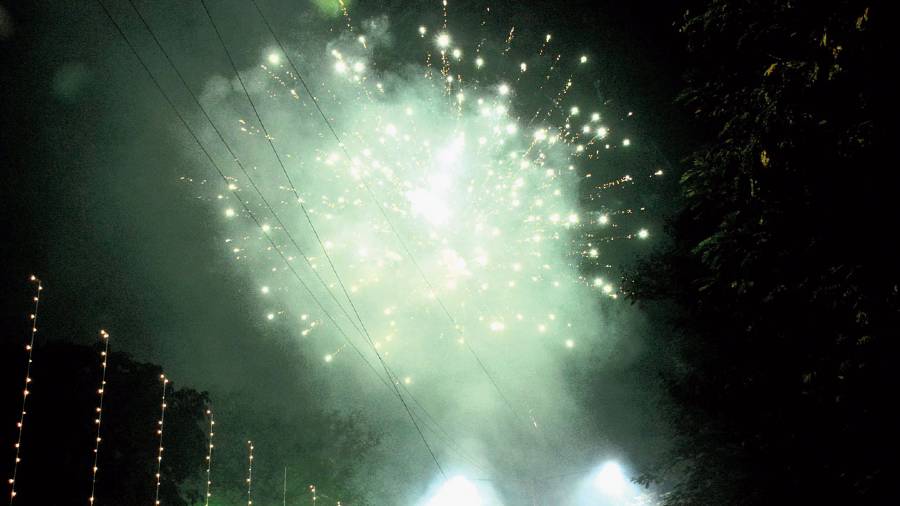Toxic air and deafening sounds of firecrackers greeted 2022 in the city.
Public health experts said the rise in the air pollution level, a result of the combination of natural phenomena during winter and release of toxic elements from firecrackers, could worsen the condition of Covid patients.
The city’s average air quality index (AQI) at midnight was 330, which falls in the “very poor” category.
All six automatic air quality measuring stations in the city recorded an AQI of 300-plus, the cut-off for the “very poor” category.
The station on the Rabindra Bharati campus on BT Road recorded the worst quality, 343, closely followed by Ballygunge, where the reading was 342.
The AQI is calculated on the basis of the dominant pollutant in the air. In Kolkata,the dominant pollutant is PM2.5, ultrafine particles that can enter deep inside the lungs and trigger a host of critical ailments, including cancer.
“Poor air quality has an additive impact on Covid patients as the virus and pollutants impact the airways and the lungs,” said Raja Dhar, a pulmonologist.
High noise levels, too, troubled people across the city. At the stroke of the midnight hour, the entire city erupted with firecrackers.
Data generated by the Central Pollution Control Board revealed that Birati, Taratala, Tollygunge, Kasba-Golpark and Patuli recorded maximum noise level, in the range of 62 to 72 decibel.
The permissible limit is 45 decibel in residential areas.
According to experts, an increase of 10 decibel doubles the pressure on eardrums of people exposed to the noise.
The noise level between midnight and 1am on Saturday was highest in Patuli —71.6 decibel.
It was followed by Taratala —70.4 decibel. Areas like Birati, Kasba and Tollygunge also recorded a noise level of around 65 decibel. “We received complaints from near Acropolis Mall in Kasba, Birati, Lake Town, Southern Avenue and Bhowanipur, as well as Howrah and Khardah ,” said Naba Dutta, of the green platform Sabuj Mancha.
“Bursting of firecrackers results in a lot of debris, often with high toxic chemicals, which gets added to the already polluted air and turn it even more hostile,” said Abhijit Chatterjee, a scientist at Bose Institute.
According to a judicial directive, only green crackers are allowed to be burst on December 31 night, from 11.55pm to 12.30am. Green crackers are not expected to create noise or air pollution.
Metro asked Subhankar Sinha Sarkar, joint commissioner of police (headquarters), about the violations and action taken by the police. “I will let you know,” said Sarkar but did not respond later to phone calls and WhatsApp message from this newspaper.
